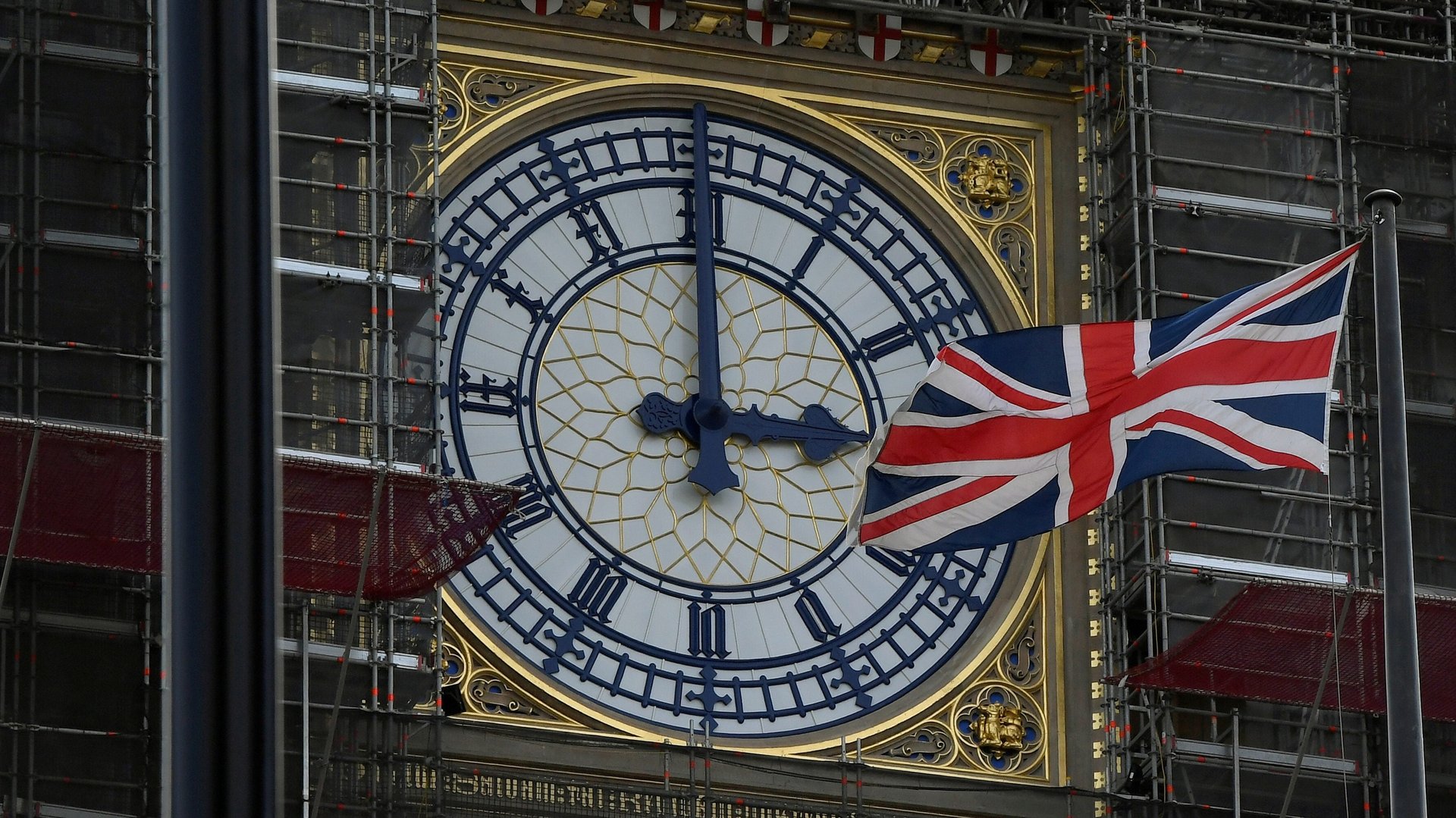Brexit is seriously stressing out the civil service
In 2016, Britain voted by a narrow margin to leave the European Union. What’s followed has been a staggering string of botched plans, failed negotiations, missed deadlines, and political polarization. The country is now preparing for its second snap general election in just over two years.


In 2016, Britain voted by a narrow margin to leave the European Union. What’s followed has been a staggering string of botched plans, failed negotiations, missed deadlines, and political polarization. The country is now preparing for its second snap general election in just over two years.
The turmoil has resulted in lost investment, grinding uncertainty, and apparently, deteriorating mental health (pdf) among Britain’s vaunted civil service.
The share of workers in public administration who say they are experiencing stress has doubled since 2016, according to data from the Health and Safety Executive, a government agency. “Increasing workloads, looming deadlines, departures of senior staff and the pressures around delivering Brexit are all being blamed for the spike,” writes the Guardian.
Around 2.5% of workers in the sector reported suffering from work-related stress, depression, or anxiety, the highest rate of all workers in all industries, according to the agency, which has been collecting data for 20 years.
The data show previous peaks in 2008, when the global financial crisis hit the UK particularly hard, and 2014, when austerity cuts likely started showing up in data. But post-Brexit anxiety surpasses both of those peaks.
It’s not as if things aren’t stressful already for workers, without the added complications of Brexit. Automation and the gig economy mean people are working more, for less, and with less of a safety net. Technology is making it impossible to escape from work. For civil servants also dealing with politicians who can’t make up their minds about what they want, it’s no wonder that collective anxiety is on the rise.
Emma Norris, research director of the Institute for Government, a think tank, told the Guardian that turnover, workloads, and uncertainty were taking a toll on public servants. “The phrase we have heard is ‘the fog of the fortnight ahead’—a constant sense that it is hard to see beyond two weeks or so, with a constant cycle of uncertainty,” she said. “That can certainly be demoralising and stressful.”